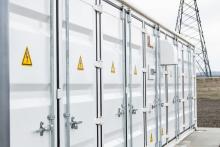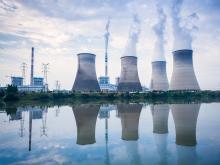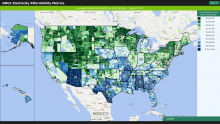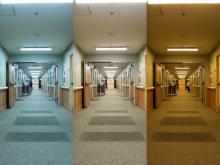Research
PNNL draws from a wealth of existing interdisciplinary research in energy equity
Related Energy Equity Efforts at PNNL
We’re informing our approach to energy equity by drawing from a wealth of existing interdisciplinary research. Our researchers have a track record of using their technical expertise to achieve equitable outcomes for disadvantaged communities and vulnerable populations, such as:
Energy Justice and Equity in Building Technology Deployment

The Guidance for Integrating Energy Justice and Equity in Building Technology Deployment Programs document provides best practices, and approaches for incorporating Energy Justice and Equity (EJE) principles into the U.S. Department of Energy (DOE) Building Technologies Office’s (BTOs) residential and commercial building technology activities. This guidance document is accompanied by an Energy Justice and Equity in Building Energy Systems Technology (EJE-BEST) reporting tool, which supports building system technology deployment teams in tracking, reporting, and maximizing the flow of benefits from BTO deployment activities to disadvantaged communities, underinvested buildings, and target sectors. Learn More.
Energy Storage

It is not common to consider the energy equity capabilities of a specific technology. Advancing equity ought to be technology agnostic with a vision to integrate justice principles, fairness, and social equity into energy systems. This is achieved by evaluating where inequities occur, who bears the inequities, what processes remedy the inequities, and how the inequities can be eliminated. PNNL is working with its energy storage technology programs, which include modeling innovation, regulatory adaptation, and demonstrations to advance energy equity through energy storage research, technical assistance, and deployment. Learn More.
Communities in Energy Transition

The United States is undergoing an energy transition: a shift away from traditional fossil-based systems of energy production and consumption to more sustainable sources of power. All across the nation, coal-dependent communities are being faced with the economic, environmental, and social challenges presented by the energy transition process. PNNL is working on identifying ways to inform the support provided to energy communities throughout the decommissioning process, whether for job creation, economic revitalization, cultural preservation, social development, and/or environmental clean-up. Learn More.
Electricity Rate Affordability

The Electricity Affordability Metrics web application is a dashboard concept that calculates residential electricity affordability based on the cost of the electricity and average income in a specific state or county. One view shows electricity affordability as a threshold percentage of income that goes to paying for electricity. The tool is based on publicly available household income information from census data combined with utility revenue and customer count information from the federal Energy Information Agency. Together they determine a customer “cost burden” for electricity. Explore the Map.
Tunable Lighting and Energy Equity

The study of tunable LED lighting in healthcare settings leads to improved patient and student outcomes, as well as a better understanding of tunable lighting impacts on energy use. Studies conducted by PNNL seek to document and evaluate existing conditions, conduct photometric and colorimetric field measurements, perform comprehensive reviews of installed lighting systems, design and analyze surveys for pre- and post-installation evaluations, and perform energy analysis of lighting systems, including how circadian metric criteria may affect energy consumption. Learn More.
Artificial Intelligence and Energy Equity

The ubiquitous rise of AI-enabled smart building technologies has contributed to more energy efficient buildings, but concerns have surfaced about how the decisions and predictions made by machine learning algorithms could negatively impact building occupants -- especially vulnerable populations and disadvantaged communities. To this end, researchers at PNNL are studying the equity and socioeconomic implications of artificial intelligence on smart energy systems. In 2021, PNNL Data Scientist Milan Jain, hosted a workshop on Fair, Accountable, Transparent, and Ethical AI for Smart Environments and Energy Systems (FATEsys) during the 8th ACM International Conference on Systems for Energy-Efficient Built Environments. The workshop brought together researchers from diverse backgrounds to discuss key issues, challenges, and breakthroughs shaping the way AI is applied to achieve equitable outcomes. The second edition of the workshop will be hosted along with SenSys/BuildSys 2022 in Boston, MA in November. Read the White Paper.